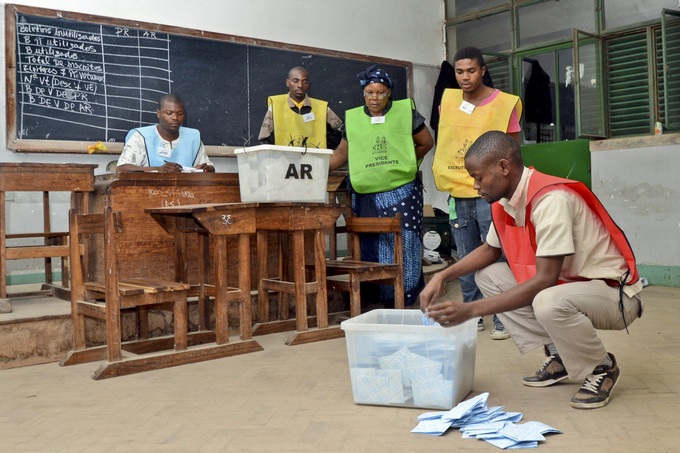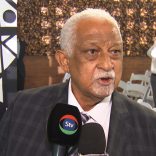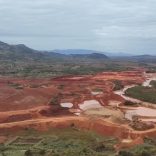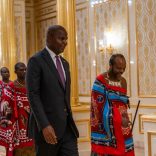Former president of the Mozambican Constitutional Council criticizes partisanship of bodies
Civil society, political parties push for regulation on African Charter as a weapon against post-electoral conflicts in Mozambique

Lusa (File photo)
Political parties and civil society organisations in Manica, central Mozambique, have called for urgent government regulation to “mitigate the cycle” of post-election conflicts, suggesting that the African Charter on Democracy, Elections and Governance be followed.
The Mozambican government adopted the document in 2007, along with 55 other members of the African Union, but only last June did the Mozambican parliament ratify it.
During a panel discussion held on Friday in Chimoio, the regional capital, on the implementation of the African Charter within Mozambique’s legal framework, civil and political organisations stressed that political and economic exclusion and oppression promoted by the government were the main causes of conflict in Mozambique.
Speaking to Lusa, Manuel Macocove, a representative of Mozambique’s main opposition party the Mozambican National Resistance (Renamo), said that the delay in ratifying the charter revealed a fear of democracy and insisted that the government should invest in a real democracy.
“The Mozambican state has ratified this resolution after 10 years, which means that, for a long time, there was fear, but it became aware of ratifying the African Charter,” Macocove said. Macocove also advocates investment in electronic voting systems.
Macocove says the implementation of the African Charter in Mozambique could have an impact, since it calls for transparent, free and fair elections, conducted by independent, competent and impartial electoral bodies, open to valid challenges, as has just happened in Kenya.
Frelimo representative Rifa Abudo urged the mass dissemination of the charter to civil society and the political class, saying it could curb conflicts and called for coming together against alleged illegalities as a means of preventing violence.
“The charter will help us to know how to be and how to be in the electoral process,” said Rifa Abudo.
Miguel Ramos, of the Democratic Movement of Mozambique (MDM), the country’s third largest political force, believes that the Charter mandate may lead to a reduction of hostility resulting from possible electoral illicit acts.
“There needs to be more debate in society,” he said.
The Organisation for Conflict Resolution’s John Chekwa said: “We’ve noted that conflicts are cyclical and this debate serves to take the pulse of understanding about democracy, elections and good governance, to improve the environment. And we conclude that civil society and politicians have an interest in democratisation, and this charter helps in this process.”
The round tables were held on Thursday across the country as part of the National Campaign for the Regulation of the African Charter on Democracy, Elections and Governance.












Leave a Reply
Be the First to Comment!
You must be logged in to post a comment.
You must be logged in to post a comment.